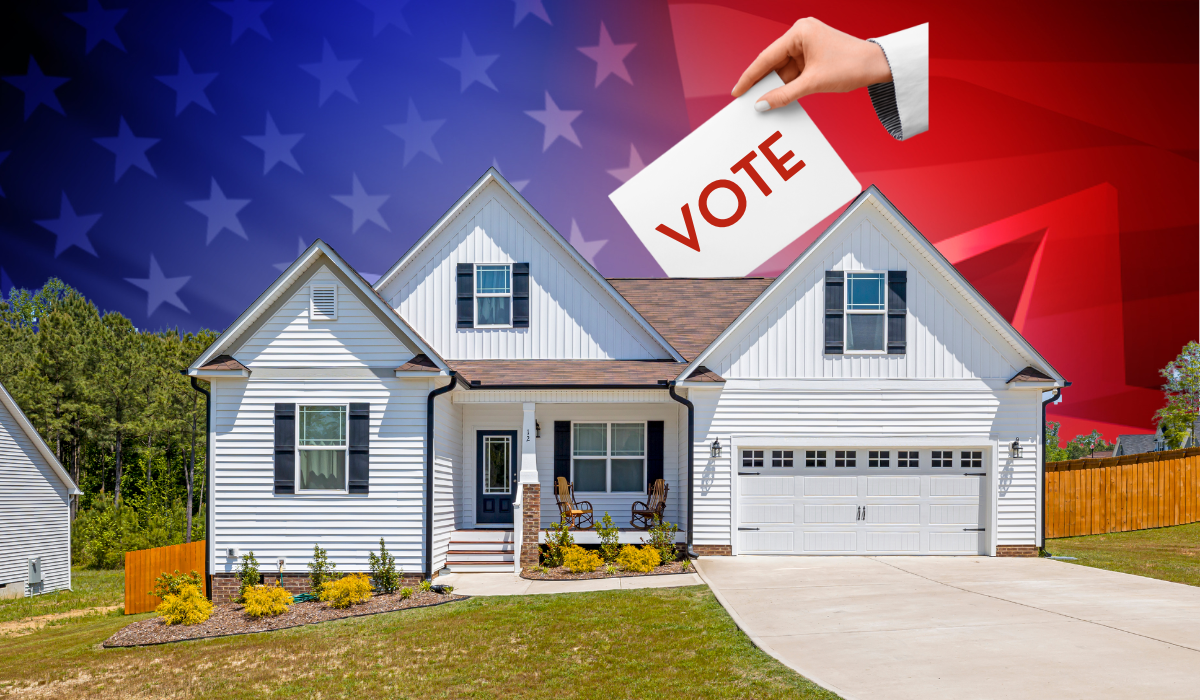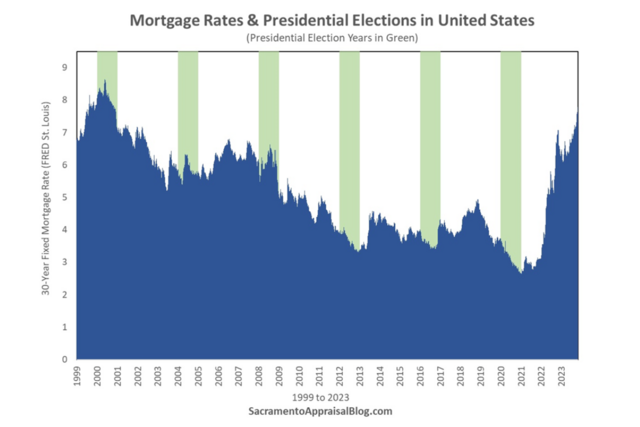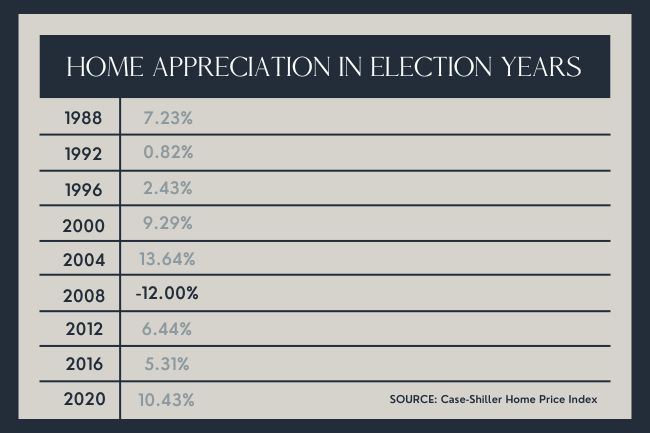
With the presidential election about four months away, some homebuyers and sellers are wondering how much will it affect the housing market. Between now and November 5, when we cast our ballots, much can change, but as many real estate trends pop up, some may just be unproven beliefs. Data shows presidential campaigns and promises of political candidates do not guarantee a change in the market, so before you make any rash decisions about buying or selling a home due to it being an election year, we'd like to shed some light on the situation.
Busting Myths
Will Interest Rates Go Down?
Contrary to popular belief, there is no consistent data to support the idea that interest rates improve during election years. Below, historical data for interest rates and presidential elections is shown. Looking at the past 13 elections, mortgage rates have been hit and miss, with no clear pattern or trend. This is because the housing marketing and mortgage rates during election years are influenced by various factors including inflation and the current economy. Data does not show that rates are directly affected by an election itself.

Will The Fed Get Involved?
Some people believe that the Federal Reserve—or even the president—might lower inflation to favor a particular party in power, but this is a myth. In reality, the Fed's rate policy is unlikely to be swayed by an upcoming election, as it operates independently and makes decisions based on economic indicators and data rather than political considerations.
Will Home Values Go Up or Down?
While we cannot predict whether homes will appreciate due to the elections, here's what has happened in the past. There have been nine presidential elections since 1987. Contrary to common expectations, home price appreciation during those election years has actually outpaced that in the 28 non-election years since then, according to a Bankrate analysis of the S&P CoreLogic Case-Shiller Home Price Index. In the table below, Case-Shiller data reveals that, on average, home prices have risen by 4.84 percent in election years since 1987, compared to a 4.44 percent increase in non-election years. This might suggest that presidential elections benefit the housing market, but the reality is far more nuanced.

WHAT DOES THE DATA SAY?
The worst year for the housing market in recent decades was 2008. Home values plunged 12 percent that year, according to Case-Shiller. This drop had little to do with Barack Obama’s battle with John McCain and was instead a result of economic timing. The historic housing bubble from 2004 to 2007 had finally burst, and the global economy was collapsing. Conversely, one of the best years for home prices was 2004, when values soared 13.4 percent. This surge was primarily due to the inflating housing bubble, not George W. Bush’s re-election.
LET'S TALK ABOUT INVENTORY
Aside from mortgage rates, the housing inventory plays a key factor in the state of the market. Home values are driven by a number of factors such as the supply of housing, the demand for those homes, and the trajectory of mortgage rates. An election year does not directly influence these factors, and therefore will not necessarily affect the housing inventory.
It's important to be educated about the actual impact of the elections on the housing market before making a decision to buy or sell (because it's election year). As your trusted Sacramento real estate experts, The Sherri Patterson Team is here to provide you accurate information and to clarify trending real estate topics.
Want to discuss the state of the market and what may work best for your situation? We're happy to chat!



